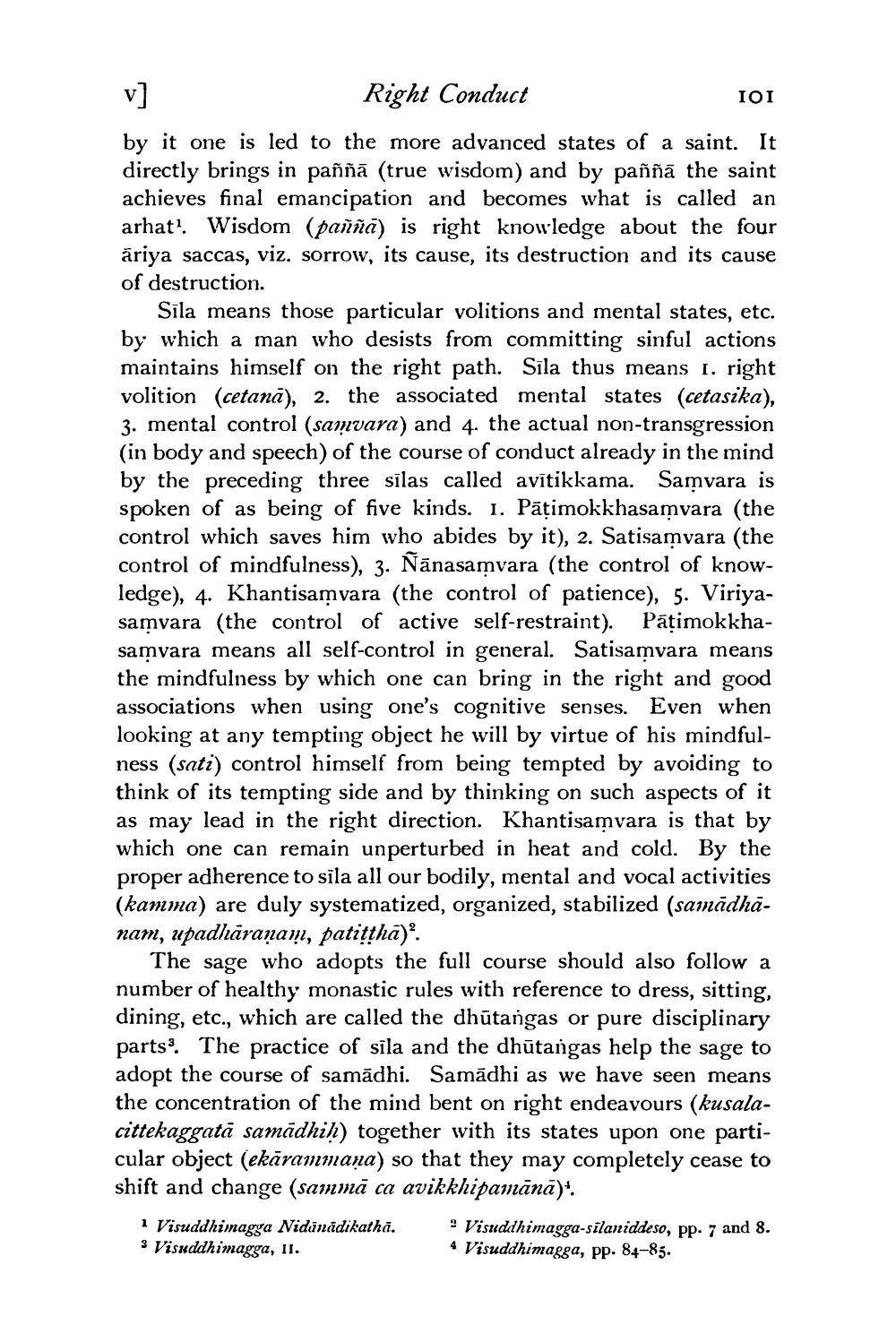________________
Right Conduct
IOI by it one is led to the more advanced states of a saint. It directly brings in paññā (true wisdom) and by paññā the saint achieves final emancipation and becomes what is called an arhat? Wisdom (paññā) is right knowledge about the four āriya saccas, viz. sorrow, its cause, its destruction and its cause of destruction.
Sila means those particular volitions and mental states, etc. by which a man who desists from committing sinful actions maintains himself on the right path. Sila thus means I. right volition (cetanā), 2. the associated mental states (cetasika), 3. mental control (samvara) and 4. the actual non-transgression (in body and speech) of the course of conduct already in the mind by the preceding three sīlas called avītikkama. Samvara is spoken of as being of five kinds. I. Pāțimokkhasamvara (the control which saves him who abides by it), 2. Satisamvara (the control of mindfulness), 3. Nānasamvara (the control of knowledge), 4. Khantisamvara (the control of patience), 5. Viriyasamvara (the control of active self-restraint). Pāțimokkhasamyara means all self-control in general. Satisamvara means the mindfulness by which one can bring in the right and good associations when using one's cognitive senses. Even when looking at any tempting object he will by virtue of his mindfulness (sati) control himself from being tempted by avoiding to think of its tempting side and by thinking on such aspects of it as may lead in the right direction. Khantisamvara is that by which one can remain unperturbed in heat and cold. By the proper adherence to sīla all our bodily, mental and vocal activities (kamma) are duly systematized, organized, stabilized (samadhānam, upadhāraṇam, patitthā)?
The sage who adopts the full course should also follow a number of healthy monastic rules with reference to dress, sitting, dining, etc., which are called the dhūtangas or pure disciplinary parts. The practice of sila and the dhūtangas help the sage to adopt the course of samādhi. Samādhi as we have seen means the concentration of the mind bent on right endeavours (kusalacittekaggatā samādhih) together with its states upon one particular object (ekārammaņa) so that they may completely cease to shift and change (sammā ca avikkhipamānā).
1 Visuddhinaga Nidaidikathā. 3 Visuddhimagga, II.
! Visuddhimagga-silaniddeso, pp. 7 and 8. 4 Visuddhimagga, pp. 84-85.




